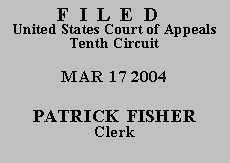

| UNITED STATES OF AMERICA, |
|
| v. | |
| PAUL JEFFREY WILLIAMS, |
Background
Pursuant to a validly executed search warrant, Air Force officials in April 2002 seized defendant Paul Williams's computer and related items located in his dormitory room at Osan Air Base in South Korea. The data on this computer contained over 900 pages of instant message communications between Williams and his wife Dee Dee. During these chats, Paul Williams repeatedly asked Dee Dee Williams to take pictures of his nine-year-old step-daughter's genitalia and send him the images over the internet. Williams once communicated online directly with the victim, asked her to pick out a sex toy from Dee Dee Williams's collection, take pictures of herself using it, and send the images to him over the internet.
During an interview after their arrest, Dee Dee Williams admitted that Paul Williams would use the internet to send her from Korea sexually explicit images of her children taken before he left the country. After pleading guilty to six counts in the indictment, Paul Williams underwent a psycho-sexual assessment, during which he admitted that he allowed the victim to see pornographic images on the internet and in his own collection when they resided together. These, he said, would answer the girl's questions about how to use his wife's sex toys.
At the sentencing hearing, Williams objected to the application of USSG § 2G2.1(b)(3)(B)(ii) to enhance his sentence level. The district court found that the section applied to each of the six counts of sexual exploitation of children, 18 U.S.C. § 2251, to which Williams pleaded guilty.
Discussion
We review for clear error the district court's factual findings and give due deference to the court's application of the guidelines to the facts. See United States v. Hargus, 128 F.3d 1358, 1364 (10th Cir. 1997), cert. denied, 523 U.S. 1079 (1998). However, we review de novo the threshold legal question of how to interpret the language of § 2G2.1(b)(3). See id.
Section 2G2.1(b)(3) instructs sentencing courts to increase a defendant's sentence if his offense involved "the use of a computer or an Internet- access device to . . . solicit participation with a minor in sexually explicit conduct." USSG § 2G2.1(b)(3)(B)(ii). In United States v. Reaves we stated that
Congress's concerns [in instructing the United States Sentencing Commission to mandate sentence enhancements for the use of computers to commit child-pornography related offenses] were not limited to a pedophile's ability to use a computer to directly contact increased numbers of children via the internet. Instead, Congress emphasized a broader concern with the ability to exploit a child's general fascination with computer technology. Thus, it appears Congress was not merely interested in punishing specific ways of using a computer to lure young victims. Rather, Congress wanted to punish more generally the fact that the perpetrator used a computer at all.
253 F.3d 1201, 1205 (10th Cir. 2001). The defendant in Reaves never used the internet to directly ask his victims to participate in child pornography; rather, he would send them pornographic images which would then inspire them to engage in sexually explicit conduct. We held that § 2G2.1(b)(3) nonetheless did apply, for the verb "solicit" was broad enough to include luring a victim into engaging in sexually explicit conduct without directly asking him to participate. Id.
We hold that § 2G2.1(b)(3) applies in this case as well. Williams argues that "none of the charges in the present case arose from or as a consequence of [an internet exchange]. Rather, the present case arose because of Mr. Williams's direct personal solicitation of the children in the home as a step-parent." Aplt. Br. at 14. This argument reads a limitation into § 2G2.1(b)(3) namely, that it only applies to a defendant who exploits children solely through the use of computers that the language does not support. On the contrary, the only facts that must exist in order for the enhancement to apply are 1) that the defendant have solicited a minor 2) in sexually explicit conduct 3) through the use of a computer or internet-access device. It is undisputed that all these facts exist in this case. Indeed, unlike the court in Reaves, which resolved an ambiguity as to the meaning of the verb "to solicit," we cannot see how the language of the Sentencing Guidelines could fail to be interpreted so as to apply to Williams.
The logic behind Williams's argument is that enhancing his sentence will not accomplish the purpose of Congress and the Sentencing Commission, which is to protect children from computer-related exploitation, for, as a step-father, he would have exploited the victim even if he did not have internet access. Even if we were, however, to look past the statute's plain meaning, we would still find that enhancing Williams's sentence does indeed protect children from computer-related exploitation. Assuming Williams would have exploited his victim without the use of a computer, the use of a computer made the exploitation easier and more frequent, by enabling him to exploit his victim from halfway around the world. Thus, by applying § 2G2.1(b)(3) to cases such as Williams's, we achieve Congress's objective of protecting children from exploitation through the use of computers.
The ruling of the District Court is AFFIRMED.
Entered for the Court
Timothy M. Tymkovich
Circuit Judge
*.This order and judgment is not binding precedent, except under the doctrines of law of the case, res judicata, and collateral estoppel. The court generally disfavors the citation of orders and judgments; nevertheless, an order and judgment may be cited under the terms and conditions of 10th Cir. R. 36.3.
2.After examining the briefs and the appellate record, this three-judge panel has determined unanimously that oral argument would not be of material assistance in the determination of this appeal. See Fed. R. App. P. 34(a); 10th Cir. R. 34.1(g). The cause is therefore ordered submitted without oral argument.